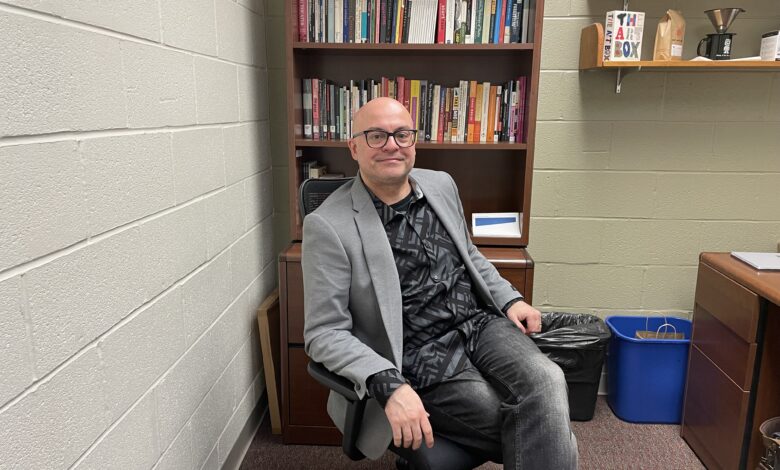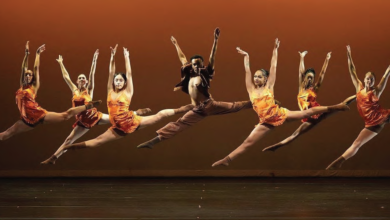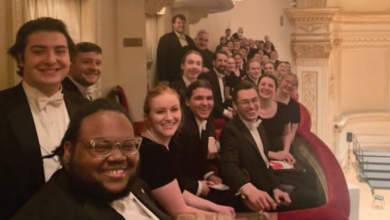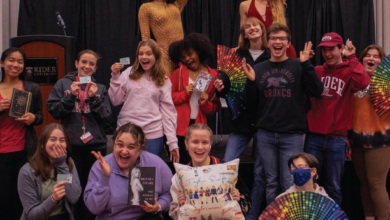
Professor uses his class to challenge colonialism
By Bridget Gum-Egan
When any student enters Assistant English Professor Vincent Toro’s classroom for the first time, they may be thrown off guard by the circular desk structure. Then they will have to adjust to Toro’s “no raising hands” rule and his suggestion to address the whole classroom when speaking, not just him.
Toro stresses that these “rules” are not absolute necessities but that he finds these recommendations place everyone in the classroom as equals, all capable of contributing ideas.
At the bottom of all his emails, Toro has a Julius Lester quote that says, “Education should impress us with how vast creation is and how small we are in the midst of it; and in the acceptance of that is the beginning of wisdom.”
Much like the quote, Toro, who has been at Rider for about three years, is dedicated to education and how powerful and important it can be. However, Toro didn’t always feel that he was destined for teaching.
Growing up, he was bullied, which steered him away from liking school settings, but he also mentioned that it inspired his later work.
“A friend of mine mentioned that, ‘All your plays and poems are really about bullying.’ And I go, ‘Yeah … all my poems and plays are about colonialism and colonialism is essentially bullying,’” Toro said.
However, throughout this challenging environment, one thing remained: his love for books and reading. A self-proclaimed “Latin nerd,” he reminisced on how he used to read all kinds of books and basically anything he could get his hands on.
“I noticed that I tore through the whole history book, actually read the whole thing, these terrible history books to find my people, mi gente,” Toro said.
Unfortunately, this love of reading and true desire to become more educated, especially on Latinx issues, was not fostered in school. He also went to a high school that was predominantly taught by white teachers who often judged Toro because of his ethnicity. He was even put in shop class because he “should be,” as Latino people are presumed to be working class.
When he finished reading the history book for his class, he was confused why the section on Puerto Rico was so short, basically only stating that it was annexed by the US during the Spanish American War. Toro asked his teacher why this was so.
“I’ll never forget it. The teacher said to me, ‘Well, because Puerto Rico’s not important,” he said.
Those words and his experience in the education system would fuel Toro’s teaching style later on. However, when he went to college, he didn’t actually study education. He tried a few courses in the major, but his true passion was in creative writing, specifically poems and plays.
Toro’s first official job was in Turkey as a teacher. He had heard through the grapevine that the position was needed, but he didn’t really have any formal pedagogical training. Despite that he really enjoyed the experience, so when a teaching opportunity came up in Newark, New Jersey, he jumped on the opportunity.

“Well, that’s in the barrio [neighborhood]. Okay, I think maybe I could teach some black and brown kids that’d be great. I’m going to be an English teacher,” he said.
After that, he completed an alternative route program to get his formal training so that he could improve his teaching abilities and classroom management skills while still teaching at Newark. This is where Toro’s unique teaching style and classroom structure was born.
As someone of Puerto Rican descent, Toro wanted his classroom to be different and to support and serve minority communities. His own experience only further motivated him to create this safe space for all students, including those who have been marginalized historically. Toro achieved this by studying all kinds of pedological styles, specifically focusing on those authors who were anti-racist and decolonial. Some of his direct inspirations included Paulo Freire, bell hooks, Bettina Love and Django Paris.
Senior English major Ashley Morales is a veteran of Toro’s classes. During one of her first English classes, she had Toro as a creative writing professor. Morales loves Toro and how he teaches his classes. She also feels represented and supported in his class, as a fellow Latinx person.
“He always asks or indiscreetly asks his students to think. Think about what is happening in the world around us, how we as artists have helped to change the world, even if we are being ignored by ‘The Man’ who upholds white supremacist values. Professor Toro helps to guide his students into having these conversations about how society, and an institution, are making strides,” Morales said.
Morales says that she was inspired and supported in Toro’s classes in ways other professors haven’t been able to do, despite many of them making the effort. This feeling was exactly what Toro wanted to accomplish in his classroom. However, he feels that there is much more to be done. Toro suggests that future generations, especially educators, should expose themselves to ideas outside of those presented by solely white people.



